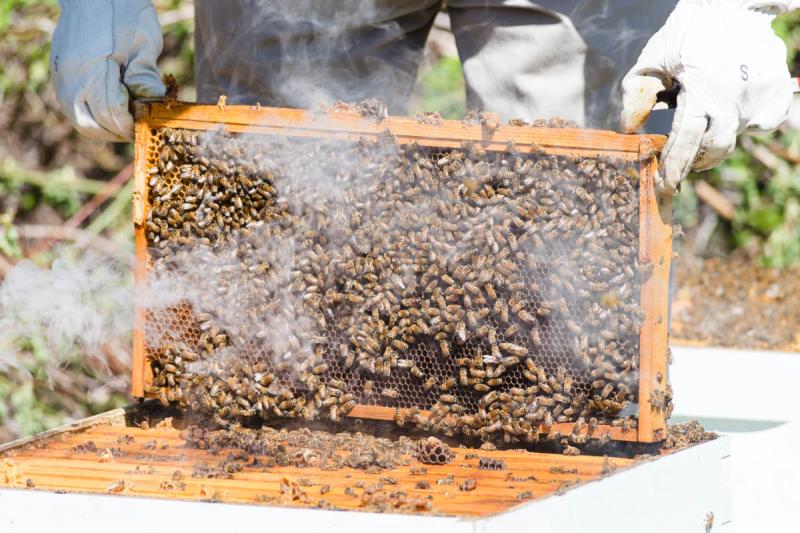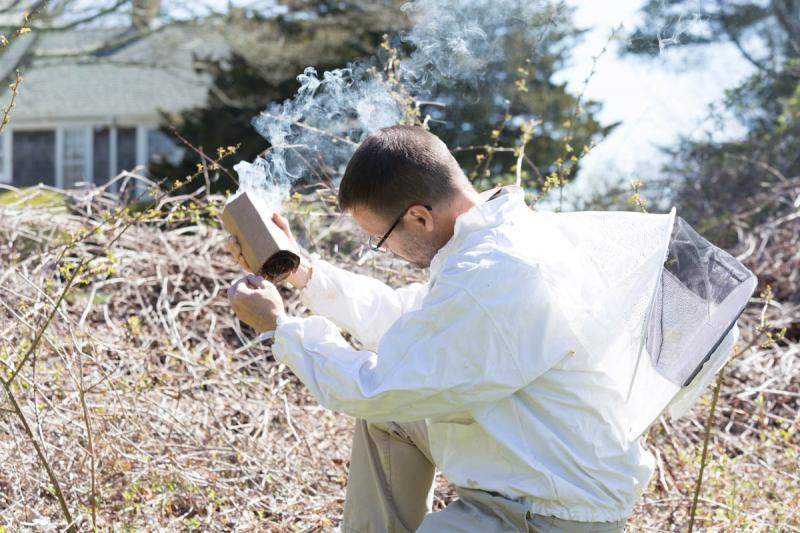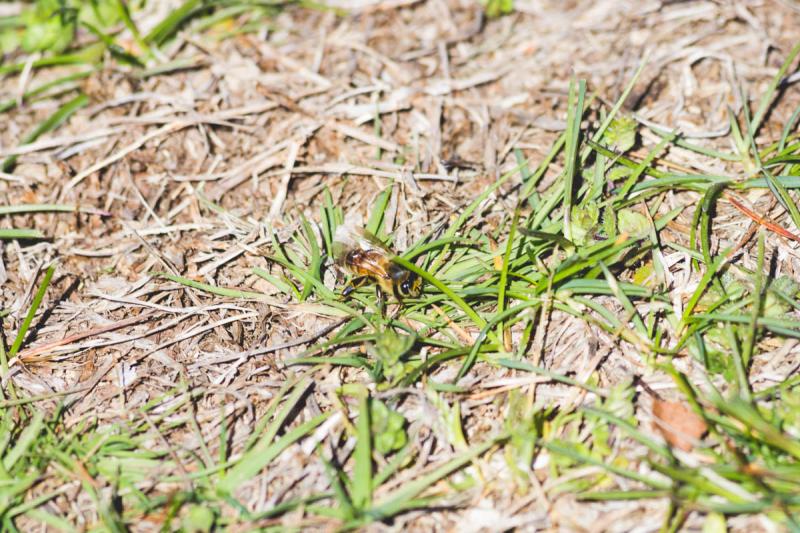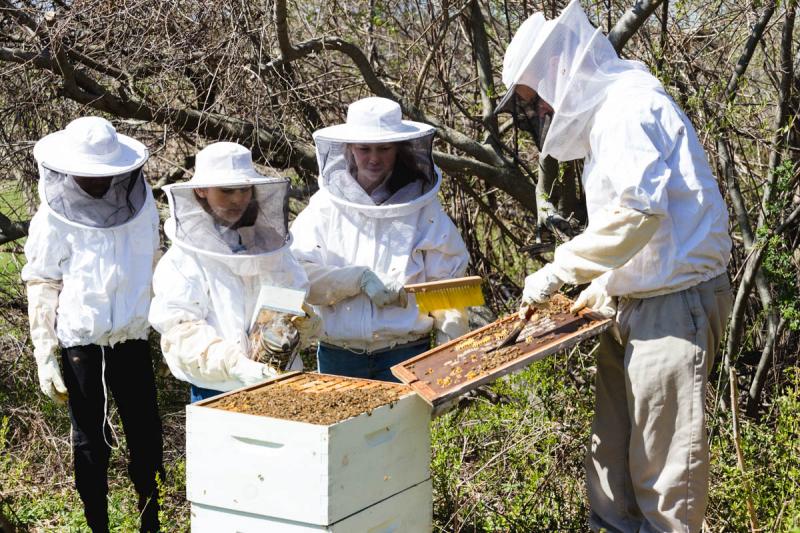Friends Academy students abuzz over beekeeping program
It takes a calm person to handle bees and tweens. Friends Academy's Charley Pelissier is that person.
Pelissier has been beekeeping for about seven years and has been running Friends Academy's after-school beekeeping program since its inception five years ago.
Pelissier and three of the four students involved in the program recently geared up in mesh protective hats, thick gloves, and canvas shirts for their first jaunt out to the school's bee boxes. Armed with a bee smoker to keep the bees calm, Gillian Foley, 12, Jordan Martin, 10, and Eva Croteau, 11, got to interact with the bees, opening the boxes and looking through the rows of frames.
Foley and Martin have both had experience working with bees. Foley, who participated in the program last year, said she found it to be more fun than sports.
Croteau agreed: "When you tell someone you play lacrosse, they're like 'cool.' When you tell someone you're doing beekeeping, they're like 'what?'"
The dwindling number of bees worldwide has been a point of concern for Croteau. She said she participates in the program to do her part to help increase bees' numbers and maintain healthy colonies.
Each box is filled with several vertical shelves upon which the bees make their combs and create honey. The shelves can be removed and observed. This was the students' first time handling the frames. The bees were behaving "vigorously," buzzing about until smoke was administered to calm them.
There were two hive boxes set up, though the group discovered that one colony had not survived. Those bees left behind a healthy hive, though, that the surviving colony likely pirated the honey from, Pelissier said.
Pelissier helped the students search for fresh eggs and the queen bee, the mother to most drone bee workers. However, they couldn't find any queen bee, which was slightly worrying, Pelissier said. He also showed the students how to remove old or dead combs that hinder the hive's growth.
The school was able to purchase the program's first bees and equipment, including woodware and smokers, through grant funding. Honey that is harvested is sold at the school during the holidays, with the money used to purchase necessary supplies for the program.



















